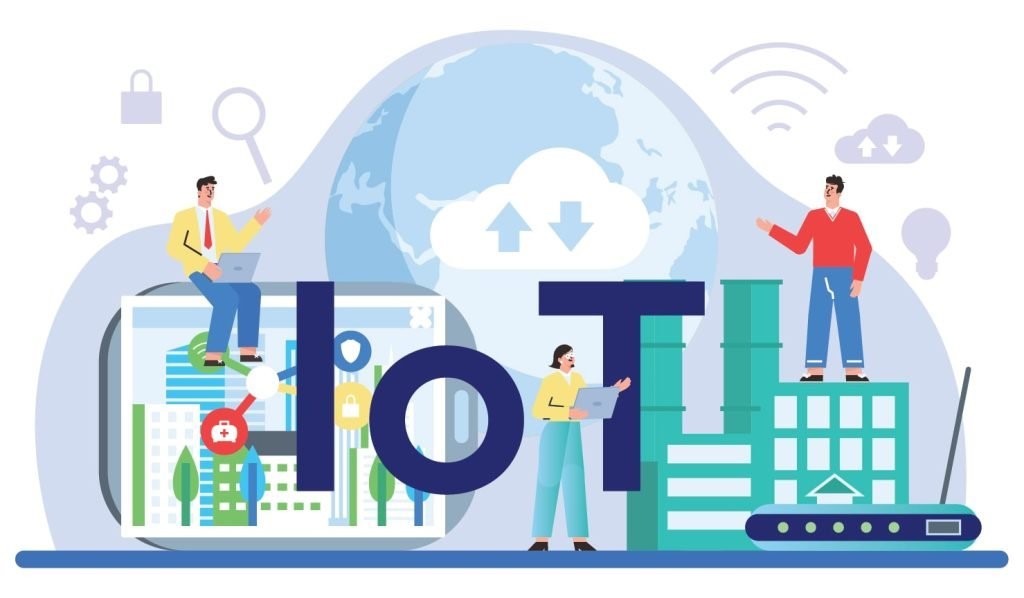
This trend is reshaping logistics, manufacturing, and customer service. By implementing IoT solutions, you gain the ability to automate processes and reduce operational costs. Understanding how IoT impacts your business operations will help you stay ahead in a rapidly evolving market.
Overview of IoT in Modern Business Operations
The integration of IoT in business operations is transforming how companies manage their processes. By connecting devices and systems, IoT enables real-time data collection and automation. As a result, businesses can improve efficiency and make more informed decisions. This trend is growing rapidly across industries, from manufacturing to retail, offering many benefits.
With IoT, you can streamline inventory management and track assets in real time. Additionally, IoT allows predictive maintenance, reducing downtime and minimizing costly repairs. These improvements boost overall productivity and help you respond quickly to changing market demands.
Moreover, the integration of IoT in business operations enhances customer experiences by personalizing interactions and optimizing service delivery. For example, companies can use IoT devices to monitor customer preferences and adjust offerings based on data insights. This capability is becoming a key advantage in competitive markets.
As more businesses adopt IoT, its influence will continue to shape modern operations, leading to further innovation and efficiency.
Enhancing Efficiency and Productivity Through IoT
The integration of IoT in business operations offers a clear path to enhancing efficiency and productivity. By connecting devices and systems, IoT enables automation and real-time data monitoring. This allows you to streamline processes, reduce manual tasks, and eliminate unnecessary delays.
One key benefit is predictive maintenance. IoT sensors can monitor equipment performance and predict potential issues before they occur. As a result, you can reduce downtime, extend the lifespan of assets, and lower repair costs. With less disruption, operations continue smoothly, improving overall output.
In addition, IoT helps optimize resource use. For example, smart systems can monitor energy consumption and automatically adjust to reduce waste. This not only improves efficiency but also lowers operational costs. You can focus on core business tasks, knowing that resources are managed intelligently.
As the integration of IoT in business operations expands, the ability to collect and analyze data in real time will become a critical advantage. This trend will continue driving innovation and efficiency across industries.
IoT’s Role in Supply Chain Management
The integration of IoT in business operations is transforming supply chain management by providing real-time visibility and control. With IoT sensors and devices, you can track shipments, monitor inventory levels, and manage logistics more efficiently. This level of transparency improves decision-making and reduces delays.
For example, IoT enables better tracking of goods in transit. You can monitor the location and condition of products, ensuring that they arrive on time and in good shape. This reduces the risk of lost or damaged goods and improves customer satisfaction. Additionally, IoT helps optimize warehouse management by automating inventory tracking and reducing the need for manual checks.
Furthermore, IoT plays a significant role in demand forecasting. By analyzing data from various points in the supply chain, you can predict trends and adjust inventory levels accordingly. This helps reduce waste and avoid stock shortages. As the integration of IoT in business operations continues to grow, supply chain management will become more agile and efficient, providing businesses with a competitive edge.
Data-Driven Decision Making with IoT Analytics
The integration of IoT in business operations is revolutionizing data-driven decision-making. With IoT analytics, you can gather vast amounts of real-time data, providing valuable insights. This data helps businesses make informed choices, improving efficiency and reducing operational costs.
IoT analytics enhances decision-making by monitoring key performance indicators in real time. For instance, you can track machine performance, identify potential issues early, and schedule maintenance before failures occur. This approach minimizes downtime and increases productivity, saving both time and resources.
Moreover, IoT-driven data enables predictive analytics. You can use this information to forecast market trends, optimize production schedules, and adjust supply chain processes. As IoT continues to evolve, data-driven decision-making will remain a critical component of the integration of IoT in business operations, offering a smarter, more responsive approach to business management.
Security Challenges and Solutions in IoT Integration
The integration of IoT in business operations offers great advantages but introduces notable security challenges. With increased connectivity, businesses face a higher risk of cyberattacks. Hackers can exploit vulnerabilities in connected devices to steal data or disrupt workflows. You must address these risks to protect your operations effectively.
Securing data in transit between IoT devices is one of the primary concerns. Weak encryption can expose sensitive information, making it a target for attackers. To minimize this risk, you should implement strong encryption protocols as well as routinely update software.
Another challenge lies in device authentication. Many IoT devices have weak security settings, like default passwords, which are easily exploited. By enforcing stronger password policies and multi-factor authentication, you can better secure these devices. Addressing these issues is key to successfully managing the integration of IoT in business operations.
Future Trends of IoT in Business Operations
The future of the integration of IoT in business operations points to increased automation as well as connectivity. As IoT technology evolves, you can expect businesses to rely on smart devices for streamlined workflows. These advancements will help companies improve efficiency and also reduce operational costs.
One emerging trend is the use of AI-powered IoT systems. With AI, IoT devices can analyze data in real-time, leading to better decision-making. This shift will enable predictive maintenance and faster responses to potential issues in your operations. Additionally, the rise of 5G networks will enhance IoT capabilities. You’ll experience faster data transfer and lower latency, allowing for more complex systems to work seamlessly.
Another trend includes IoT’s role in sustainability efforts. As businesses focus on reducing their carbon footprint, IoT sensors can help track energy consumption and identify areas for improvement. The integration of IoT in business operations will continue to evolve, offering new opportunities for innovation.
Conclusion
The integration of IoT in business operations will continue to shape the future of industries worldwide. As technology advances, you can expect more connected systems that boost productivity and efficiency. These innovations will offer new opportunities to streamline your operations and make data-driven decisions.
By adopting IoT solutions, businesses can stay competitive and agile. With improved connectivity as well as automation, IoT will help you reduce costs and also optimize workflows. As these business education trends show, staying informed and adaptable is key to navigating the changes that IoT brings to business operations.

